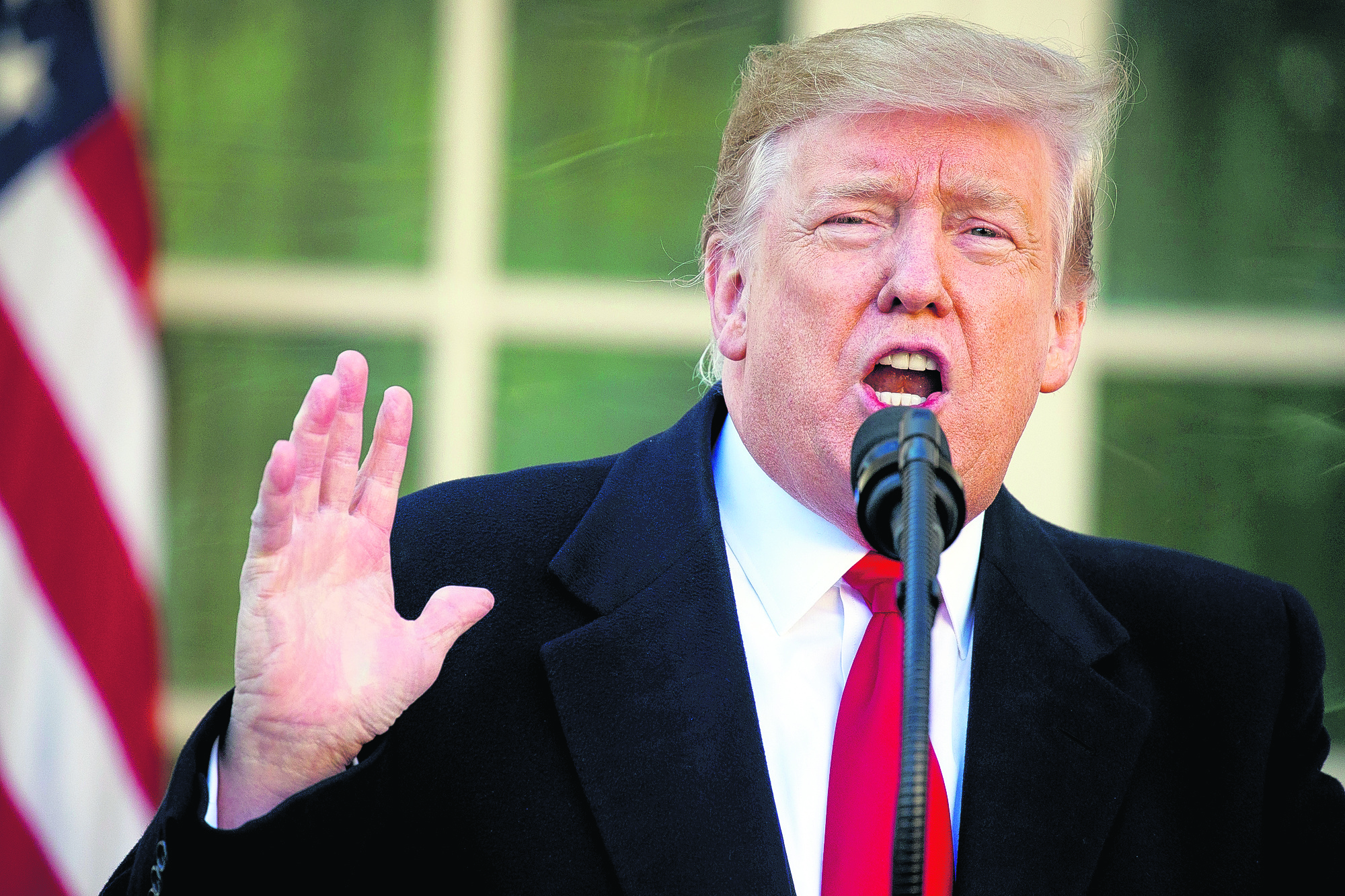
The public continues to give President Donald Trump his best ratings on the economy, but a new poll finds the share who approve of how he’s handling that issue has slipped since last fall.
And as his promise of a U.S.-Mexico border wall brought a stalemate over funding to Washington, Trump also sees tepid support over his handling of immigration and border security. The new poll from The Associated Press-NORC Center for Public Affairs Research shows the 35-day partial government shutdown took a toll on Trump’s overall performance ratings. While presidential approval has fluctuated only slightly throughout Trump’s two years in office, he neared his lowest marks this month, slipping from December.
Here’s how the nation assesses Trump’s performance:
LOW MARKS OVERALL
The poll finds 34 percent of Americans approve of the way Trump is handling his job as president, compared with 65 percent who disapprove.
Trump’s current approval rating nears the lowest measured in an AP-NORC poll since he took office. Still, Trump has seen remarkable stability in his ratings throughout his presidency, with his approval falling in a narrow range across most polls, from the mid-30s to the mid-40s.
In December, 42 percent expressed approval of Trump, while 56 percent disapproved.
___
ECONOMY AT THE TOP
Trump has long received better marks for his handling of the economy than his performance overall, and that remains true. But current assessments put Trump decidedly in the red for the first time since February 2018.
Currently, 44 percent of Americans approve of Trump on the economy, while a 55 percent majority disapproves. In October, and for much of last year, the president saw nearly 50 percent approval ratings on his handling of the economy.
Democrats are staunchly negative in their ratings of the president overall and on most issues, but about 2 in 10 had approved of the president on the economy last year. Now, just 14 percent of Democrats say they approve of Trump’s handling of the economy.
___
OTHER ECONOMIC FACTORS
Approval of Trump’s handling of trade negotiations with other countries (39 percent) and taxes (40 percent) also rank relatively high, while his handling of the federal budget deficit (31 percent) is among the least positive.
Across most issue areas, at least three-quarters of Republicans give the president positive ratings, including 85 percent on the economy, 82 percent on trade negotiations and 78 percent on taxes. But that figure drops to about two-thirds when it comes to Trump’s handling on the federal budget deficit.
___
IMMIGRATION AND THE BORDER
The poll, conducted during the shutdown, when the debate over Trump’s border wall was front and center, finds roughly a third of Americans say they approve of the president’s handling of immigration and about as many say the same on border security.
___
TRUMP ON THE RUSSIA PROBE
Three in 10 Americans say they approve of how Trump is handling the Russia investigation, while two-thirds say they disapprove.
Republicans are slightly less likely to approve of how Trump is handling the investigation by special counsel Robert Mueller when compared with other issues, though a majority still express positive opinions. About 6 in 10 Republicans approve of Trump on his handling of the Russia probe, compared with at least three-quarters who approve on most other issue areas.
___
OTHER ISSUES
The president also gets tepid ratings on his performance on health care (35 percent), foreign policy (35 percent) and climate change (30 percent).
___
The AP-NORC poll of 1,062 adults was conducted Jan. 16 to 20 using a sample drawn from NORC’s probability-based AmeriSpeak Panel, which is designed to be representative of the U.S. population. The margin of sampling error for all respondents is plus or minus 4.1 percentage points.
Respondents were first selected randomly using address-based sampling methods and later were interviewed online or by phone.



















